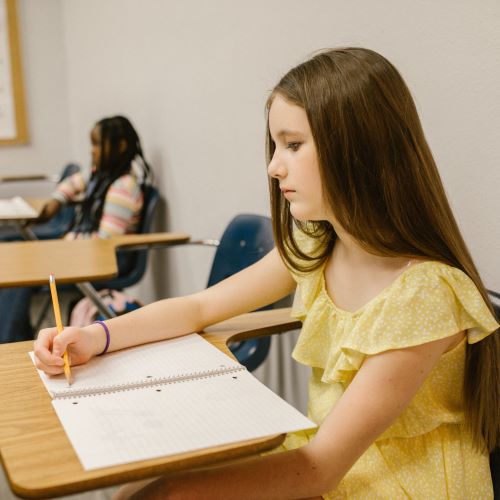Our Children are more than just a set of attainment scores.

Other than SATS, state primary schools in England don’t have to assess children in the way they once did. In 2014, the government scrapped National Curriculum levels and schools now grade children as working ‘within’, ‘towards’ ‘below’ or ‘exceeding’ the expected level of attainment for their age.
The problem is that many parents expect a numerical score. It’s a tangible thing they can understand when it comes to their child’s achievement. Although it’s optional, schools might provide other means of scoring such as CATs or NFER. If the schools are in a Grammar catchment area, these scores help parents determine whether their child should sit the 11+ exam.
What does an attainment score tell you?
I think other than eligibility for Grammar school, the scores don’t actually tell you anything. At primary level, and even early on in secondary school, children develop at different rates. The girls will likely be ahead of the boys at a younger age, with boys catching up from about age 13. As long as a child is working within, or even towards their expected levels, then this should be all you need to know.
Don’t get obsessed over attainment scores.
It’s easy to start comparing your child to other children when you have numerical attainment scores in your hands. But it’s important to remember that these are just tests, and tests don’t measure everything. I know some children who have wonderful creative imaginations and can write prose that is beyond their years, some of which have brought tears to my eyes. They can’t spell very well, though. And what is a test going to mark them on? Their beautifully composed stories or their ability to spell?
Test scores can kill creativity.
If a child doesn’t score well on their tests and they become aware of it, they’re going to compare themselves to their peers and start to feel inadequate. There’s a strong chance they might stop bothering to try, thinking what is the point? A test score can become a label that says you’re not good enough, or you need to do better, and we don’t want our kids to feel this pressure. They have enough problems with anxiety as it is.
If your child is falling behind.
If you know that your child is working at ‘below expected’ in terms of attainment, you might want to consider extra tuition. Many children fell behind during the lockdown periods and still haven’t caught up. The longer it goes on, the further behind they become. This isn’t a reflection on your child, it’s a reflection of the times and the unfortunate period of missed schooling that has affected our children in a far greater way than any of us could have imagined.
As an English and writing tutor, I provide private tuition for children in KS2 and up to GCSE. I also provide English lessons for individuals who are not native English speakers. In addition, my creative writing classes for 7-14-year-olds provide a fun way for children to learn how to write creatively and to enjoy the benefits it can bring. My first love is the written word, and my aim is always to pass on this love to all those I work with. For me, writing has been a creative outlet that has helped me during difficult times. When I’m writing, I can fall into my words and the world around me melts away. That’s why I believe being able to articulate our thoughts and feelings is such a vital skill and one every person should have access to.

0 Comments